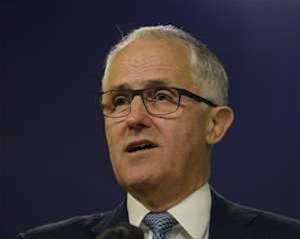Communications Minister Malcolm Turnbull believes Australians are "too harsh" when it comes to entrepreneurs whose projects don't succeed, urging a shift in thinking to encourage innovation.

Speaking at the launch of new Telstra-backed accelerator muru-D in Sydney, Turnbull said the supporters and financiers of start-ups— as well as the entrepreneurs themselves — needed to "recognise that there is actually almost no such thing as failure".
"The whole business of innovation is in large measure an exercise in trial and error, so the right attitude is one of resilience and experiment, and if something doesn't work, that's ok, dust yourself off and have another go," he said.
"That's a very important cultural issue because I think in Australia we are still too harsh on entrepreneurs and innovators whose projects don't succeed."
Turnbull said Silicon Valley had "plenty" of billionaires with "dud projects behind them", noting that entrepreneurs could learn more from projects that didn't work out.
"Think about in your own life — if you do something that works, that is successful, you just put it down to your own innate genius and move onto the champagne," he said.
"If on the other hand something doesn't work out you will do generally a pretty detailed post mortem and you'll learn a lot from it."
Turnbull used the launch to reiterate the Coalition's pre-election pledge to change taxation of employee share options, which start-ups and their supporters have been seeking for some time.
He said the current "very unsatisfactory rules on employee share options ... are absolutely a major disincentive to startup businesses in Australia".
Turnbull noted a continuing review of the issue — instigated by the former government — noting that the Coalition would "obviously look at it when it's complete".
"Obviously the tax system has got to work so that everyone pays their share, but it should be operating in a manner that encourages start-ups [and] people to issue stock to employees in new businesses," he said.
"Then if they kick a big goal and they all make out like bandits at the end and make millions of dollars, then they can pay lots of tax then, that's great. But you don't want to be disincentivising them at the outset."
Turnbull also reserved praise for Telstra and its management for backing muru-D — based out of a former Telstra exchange building in the Sydney inner suburb of Paddington..
muru-D is currently accepting applications from start-ups for the first round of assistance. Applications close at midday on November 25.
Telstra Media group managing director Greg Ellis said up to 10 start-ups would be eligible every six months. The chosen few would receive $40,000, access to muru-D, and access to "business mentors, coach volunteers, introductions to Telstra's partners, suppliers, the media and investors."
"Seed funding every six months for up to 10 digital start up innovators and entrepreneurs who have the great ideas but lack the financial, technology and support resources to get them off the ground," Ellis said.
"It is a seed stage accelerator program targeted at fostering the establishment of new, as-yet-unestablished digital businesses in Australia."
Though it was backed by Telstra, muru-D founders said they wanted to encourage applications with diverse interpretations of "digital", not just those that might benefit the carrier's business model.
The name of the accelerator is derived from 'muru', an indigenous word meaning 'road to' and D for 'digital'.
One of muru-D's co-founders, Ann Parker, joins from Telefonica, where she was head of operations for its digital start-up accelerator program, Wayra.



_(36).jpg&h=140&w=231&c=1&s=0)







 iTnews Executive Retreat - Security Leaders Edition
iTnews Executive Retreat - Security Leaders Edition
 iTnews Cloud Covered Breakfast Summit
iTnews Cloud Covered Breakfast Summit
 The 2026 iAwards
The 2026 iAwards












_(1).jpg&h=140&w=231&c=1&s=0)



